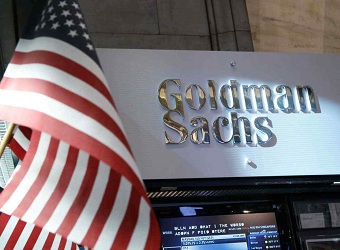Goldman Sachs said on Tuesday that while clashes in the Kurdistan region of Iraq posed a risk to oil output, intensifying geopolitical tensions between the U.S. and Iran remained a more formidable and longer-term threat to global oil supply.
After several weeks of fairly flat trade, a risk premium has returned to oil markets and boosted global prices. On Monday, Iraqi forces moved into the oil-rich province of Kirkuk — threatening oil supplies — while political tensions between the U.S. and Iran continued to reverberate.
“In the case of Iran, there are likely no immediate impacts on oil flows and there remains high uncertainty on potential reintroduction of U.S. secondary sanctions. If they are, we expect that several hundred thousand barrels of Iranian exports would be immediately at risk,” analysts at Goldman Sachs said in a research note published Tuesday.
On Friday, President Donald Trump had refused to certify that Tehran was complying with the terms of a landmark 2015 agreement aimed at controlling Iran’s nuclear program.
Instead, he asked lawmakers to toughen the agreement, negotiated between Iran and six world powers, by amending a U.S. law. At the same time, the U.S. administration will try to convince European leaders to impose new sanctions on Tehran and return to the negotiating table.
In the absence of support from other countries, Goldman suggested it is unlikely production would fall by 1 million barrels per day to the levels before Western sanctions were imposed on Tehran.
‘Kirkuk oil field cluster is at risk’
“In the case of Kurdistan, the 500,000 barrel-per-day (bpd) Kirkuk oil field cluster is at risk with initial reports that 350,000 bpd has shut in, although this remains unclear,” Goldman analysts said.
High revenue per barrel and low production costs in the oil-rich Kirkuk province would most likely “incentivize” both sides to keep oil flowing, analysts at the U.S. investment bank added.
Iraqi forces loyal to the central government in Baghdad rapidly took over almost all of the disputed Kirkuk province on Monday, with Kurdish forces retreating to nearby oilfields. These military maneuvers in Iraq come after the country’s semi-autonomous Kurdistan region voted overwhelmingly in favor of independence in a referendum last month.
While Iraqi Prime Minister Haider al-Abadi denounced the vote as unconstitutional and ordered the result to be annulled, the Erbil-based Kurdistan Regional Government defended the referendum as legitimate and pushed for dialogue with Baghdad.
‘Nearly half of Iraqi Kurdistan’s exports in the balance’
“As feared, Kirkuk and the surrounding oil fields are caught in the crossfire of the dispute between Baghdad and Erbil, placing nearly half of Iraqi Kurdistan’s exports in the balance,” Helima Croft, global head of commodity strategy at RBC Capital Markets, said in a note.
Iraq is OPEC’s second-largest oil producer. Kurdish-controlled areas of Iraq are among the most productive in the country and contain much of its energy infrastructure.
After a strong rally in the previous session, geopolitical tensions edged oil prices higher on Tuesday morning. Brent crude rose 0.6 percent to $58.16 a barrel while U.S. oil futures hovered near the $52 level in lunchtime trade.
Source: CNBC


